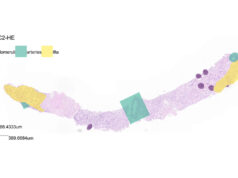 Natera has announced the results of a large clinical experience study confirming the “strong performance” of its Prospera donor-derived cell-free DNA (dd-cfDNA) test in assessing rejection for kidney transplant patients.
Natera has announced the results of a large clinical experience study confirming the “strong performance” of its Prospera donor-derived cell-free DNA (dd-cfDNA) test in assessing rejection for kidney transplant patients.
The study, published in Transplantation Proceedings, reports the real-world impact of dd-cfDNA on patient management in a multicentre, real-world clinical cohort, including 879 patients evaluated from 33 participating clinics. Eighteen of the 28 patients with biopsy-matched high-risk Prospera dd-cfDNA test results were confirmed to have active rejection, demonstrating a reported 64% positive predictive value (PPV). Further, six of the remaining 10 patients had borderline T-cell mediated rejection (TCMR) or other pathologic conditions consistent with other types of kidney injury.
As summarised in the publication, “the data indicate that incorporating dd-cfDNA testing into practice may improve physician decision-making regarding renal allograft recipients”. This is according to a Natera press release.
“The Prospera dd-cfDNA test continues to solidify its role as an important tool for monitoring the graft health of transplant patients,” said Yasir Qazi (Keck School of Medicine of the University of Southern California, Los Angeles, USA), principal investigator and lead author of the study. “It was exciting to see a strong performance in real-world clinical settings across leading institutions.”
The release concludes that this study adds to the growing body of evidence supporting Prospera dd-cfDNA testing—which also includes the Trifecta study, the largest prospective, biopsy-matched, multicentre study to date in the field of kidney transplantation, currently submitted for publication.











